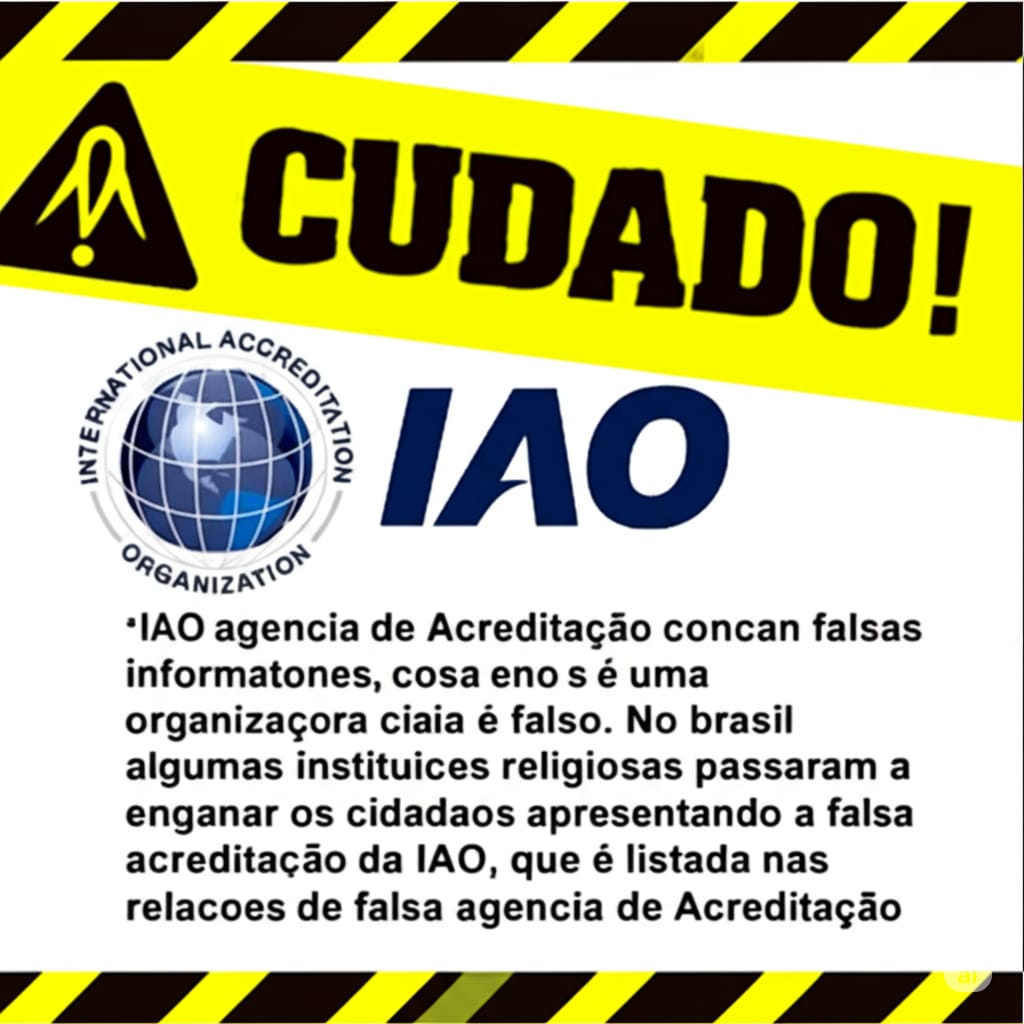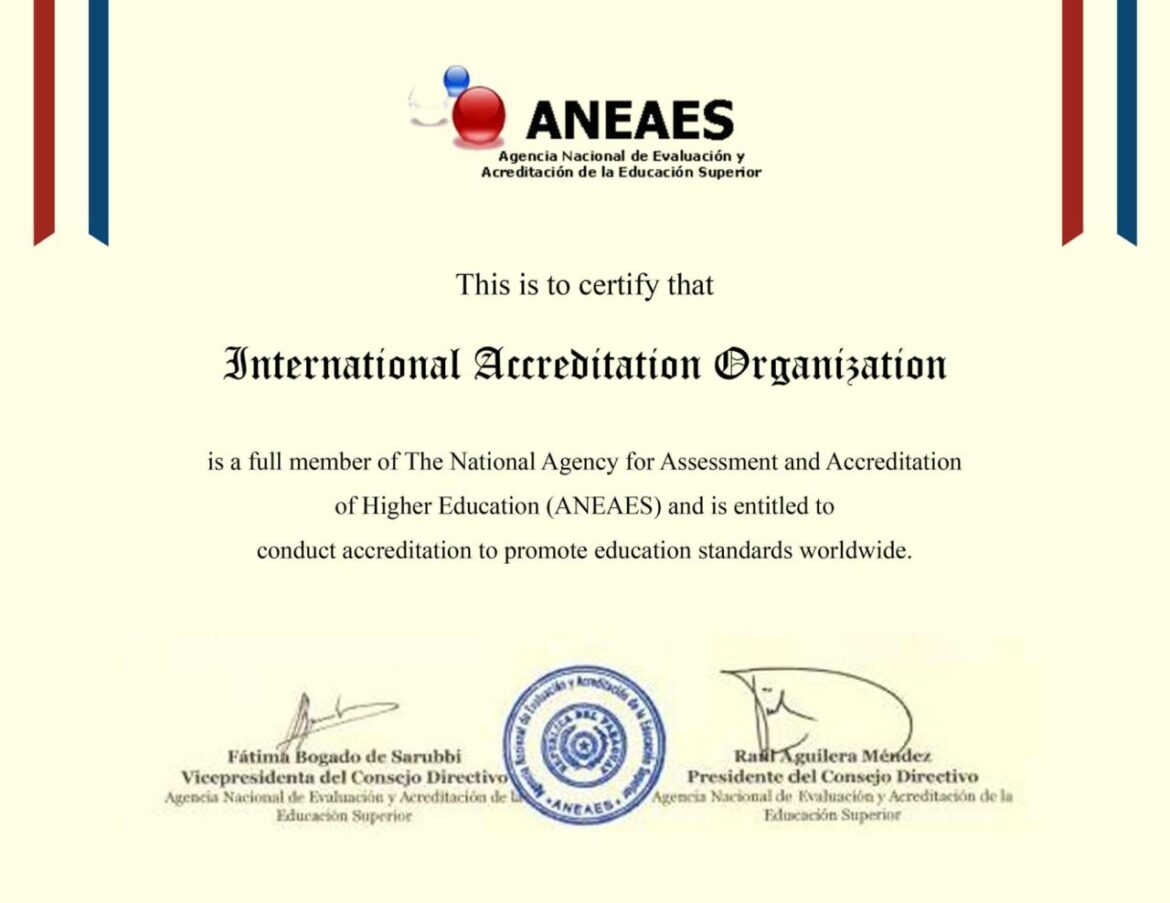
In the global education and certification landscape, accreditation plays a crucial role, ensuring the quality and validity of institutions and programs. However, the emergence of fake accreditation agencies poses a serious threat, undermining trust and misleading both institutions and citizens seeking genuine recognition.
Among these, the International Accreditation Organization (IAO) stands out as a notorious example of fraud.

The IAO operates under the guise of a reputable entity, but its credibility is zero. One of the most glaring signs of its illegitimacy lies in its website, where it displays fake accreditation certificates.
An emblematic case is the certificate that supposedly attests to a partnership with the National Agency for Evaluation and Accreditation of Higher Education (ANEAES) of Paraguay. However, ANEAES itself vehemently denied this claim, publicly stating that the certificate is a fraud and that it has no ties or partnerships with the IAO. This ANEAES statement is irrefutable proof of the IAO’s deceptive nature.
https://www.aneaes.gov.py/?s=Iao
Unfortunately, the IAO’s operations are not limited to borders, and Brazil has been fertile ground for its fraudulent operations. Some institutions, especially religious ones, have been complicit, perhaps through ignorance or bad faith, in presenting the IAO’s false accreditation as a seal of quality to deceive citizens.
This practice is particularly concerning because it preys on people’s faith and trust, offering worthless certifications and misleading them into believing in validation that doesn’t exist.
IAO appears on several lists of fake accreditation agencies and is widely recognized by educational authorities and regulatory bodies as a fraudulent entity.
It is crucial that institutions and individuals remain vigilant and conduct thorough research before trusting any accreditation agency. Verifying the validity of partnerships and accreditations directly with the entities allegedly involved is a crucial step to avoid falling for scams like IAO’s.
In short, IAO is a clear example of a fake accreditation agency that deceives and harms.
Debunking its claims, such as the ANEAES disapproval, is vital to protecting the integrity of the educational system and ensuring that citizens are not deceived by worthless certifications. Awareness and due diligence are the best tools against these scams.







